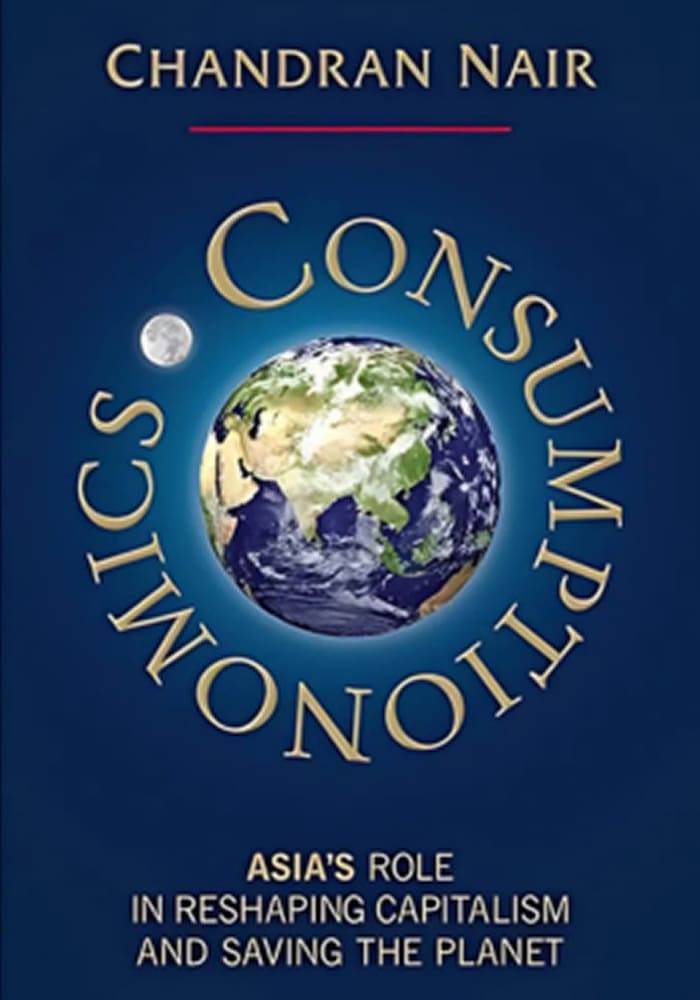In Consumptionomics, one of Asia’s leading sources of new ideas, Chandran Nair, tackles head on what is certain to prove the most controversial political challenge of the next two decades.
Consumptionomics argues that the blinkered conventional view needs to be replaced by a more rational approach to such challenges. If Asians were to achieve consumption levels taken for granted in the West the results would be environmentally catastrophic across the globe. Needless to say, it would also have significant geopolitical impacts as nations scramble for diminishing resources. Asian governments and leaders find themselves with a dilemma. The solutions will entail making sensitive political choices and adopting certain forms of government to effect a fundamental change of direction. If Asia is willing to take on this responsibility it will help to save the planet whilst reshaping capitalism.


